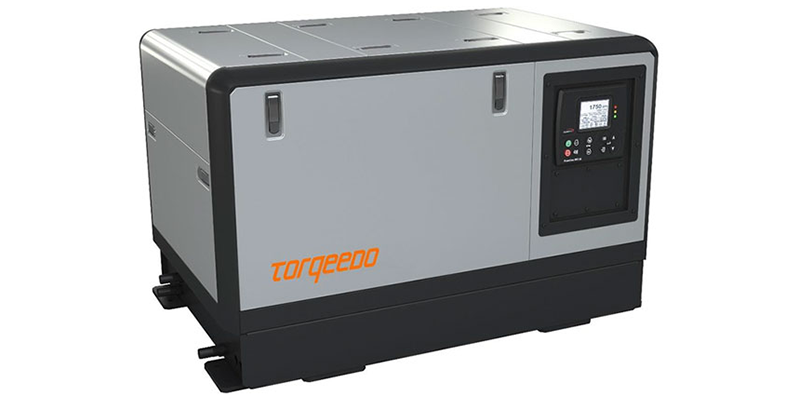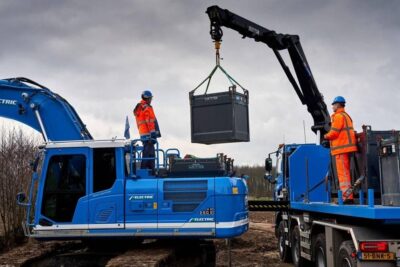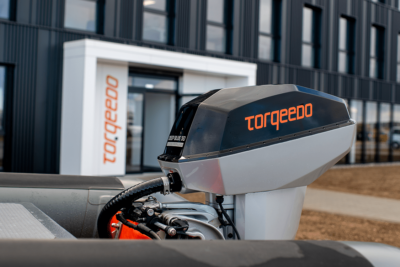Range extender for hybrid vessels by Torqeedo
The German company, specialised in electric motors for vessels, intends to launch a 25 kW range extender for its system Deep Blue. In order to do so, Torqeedo teams up with Dutch company WhisperPower.
The generator is supposed to consumes just 295 g of fuel per kWh of electricity produced and – consistent with ‘WhisperPower’ – is said to be much less noisy than comparable equivalents.
Integrated into Torqeedo’s Deep Blue hybrid system, the range extender is part of an advanced feature set on board. The system harvests energy from solar panels and hydrogeneration to charge the boat’s batteries, manufactured by BMW i. In July 2017, both companies started their cooperation, enabling Torqeedo to use the i3’s power pack for energy storage in its series Deep Blue and to make use of the i8’s battery as well.
Not long ago, Torqeedo has been acquired by German engine manufacturer Deutz. The company considers Torqeedo a catalyst for its “e-Deutz strategy” and plans to soon serial produce innovative components. Each component of the first series can be scaled to meet customers’ demand.
torqeedo.com





2 Comments